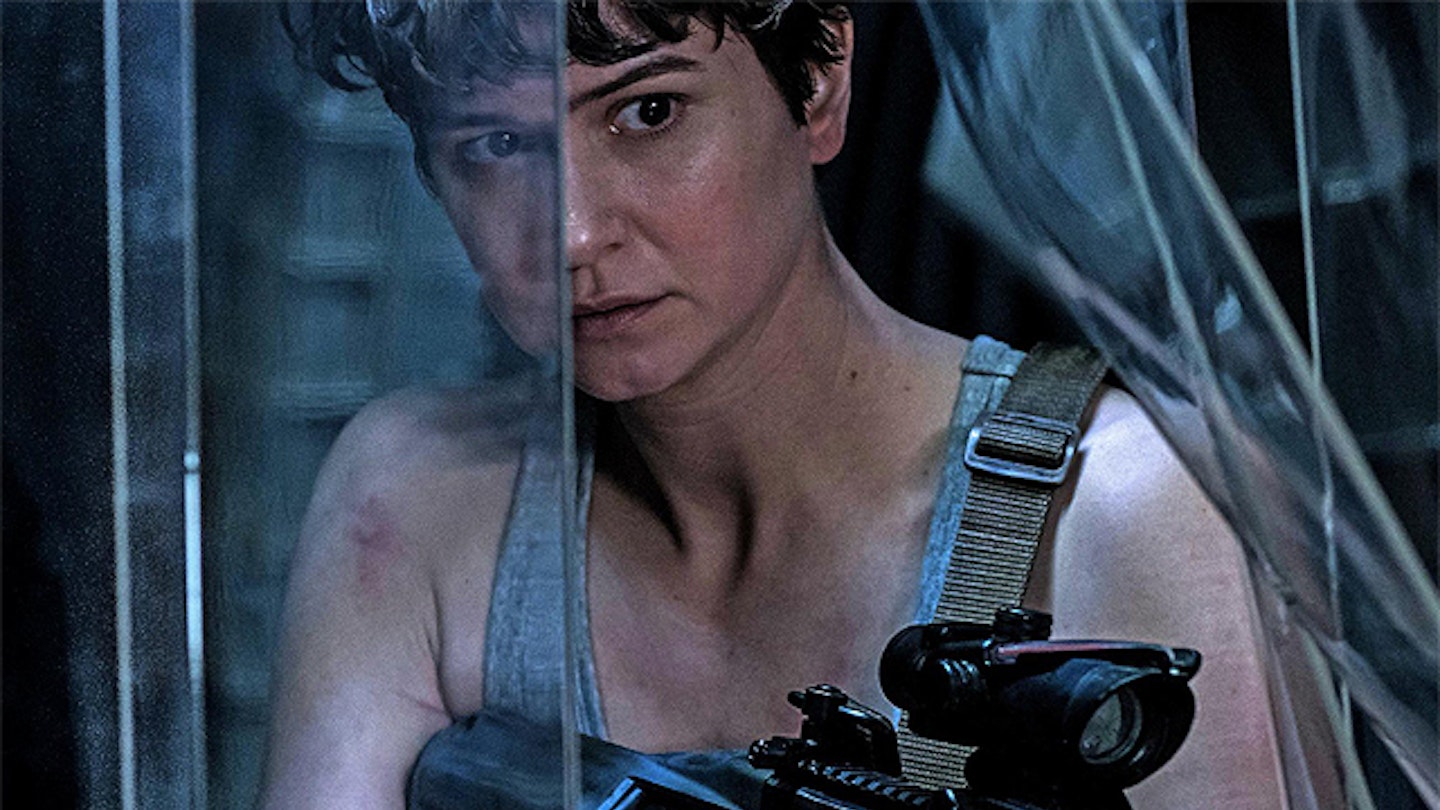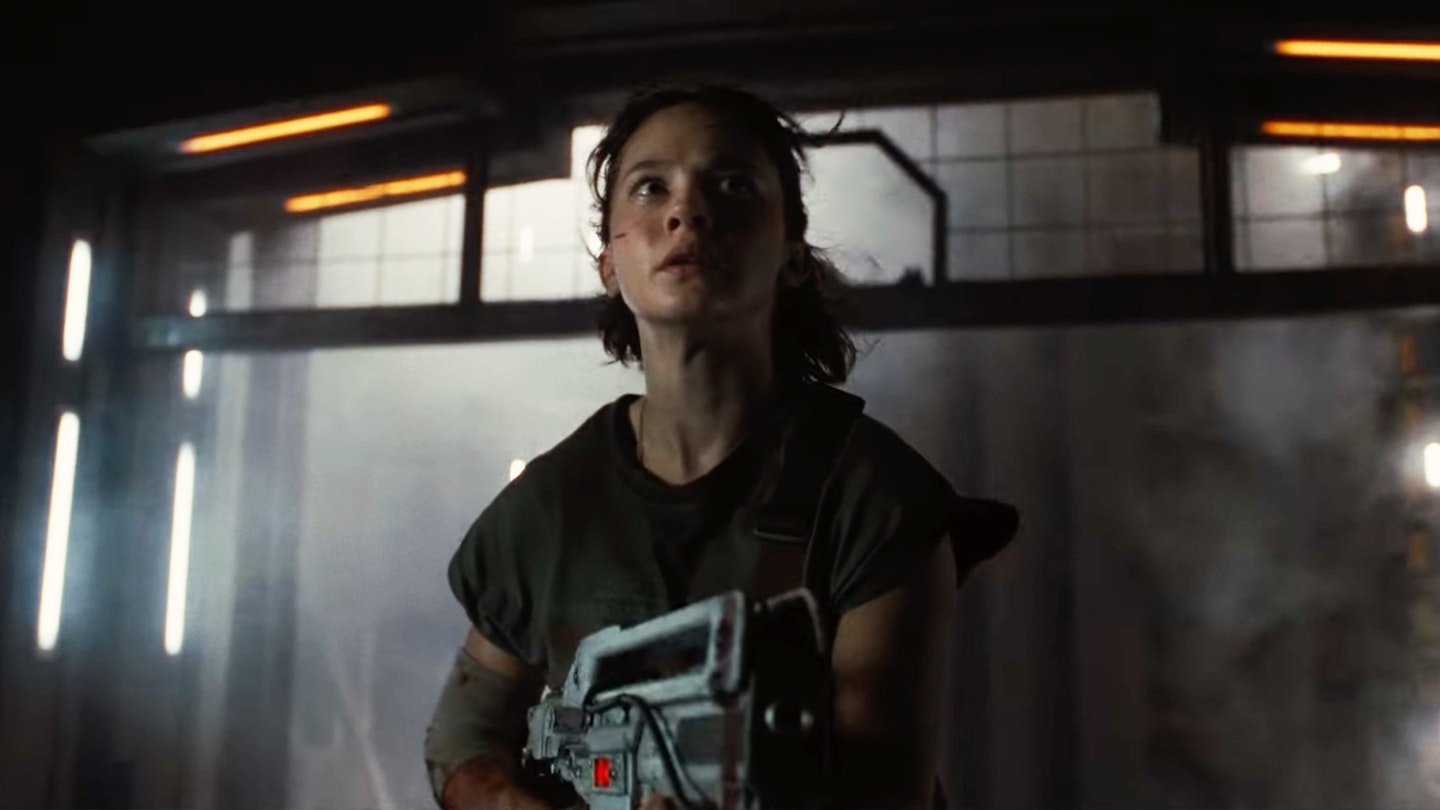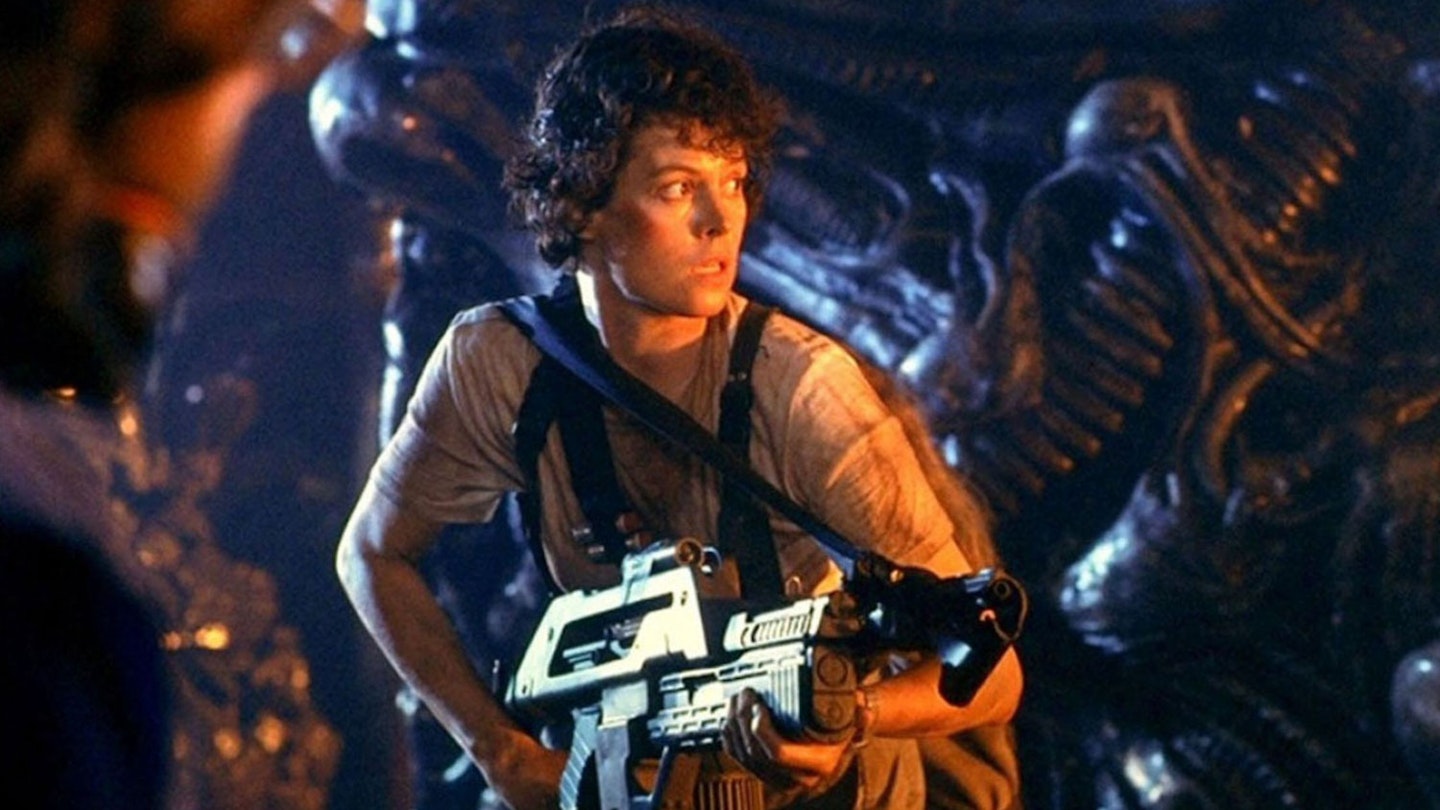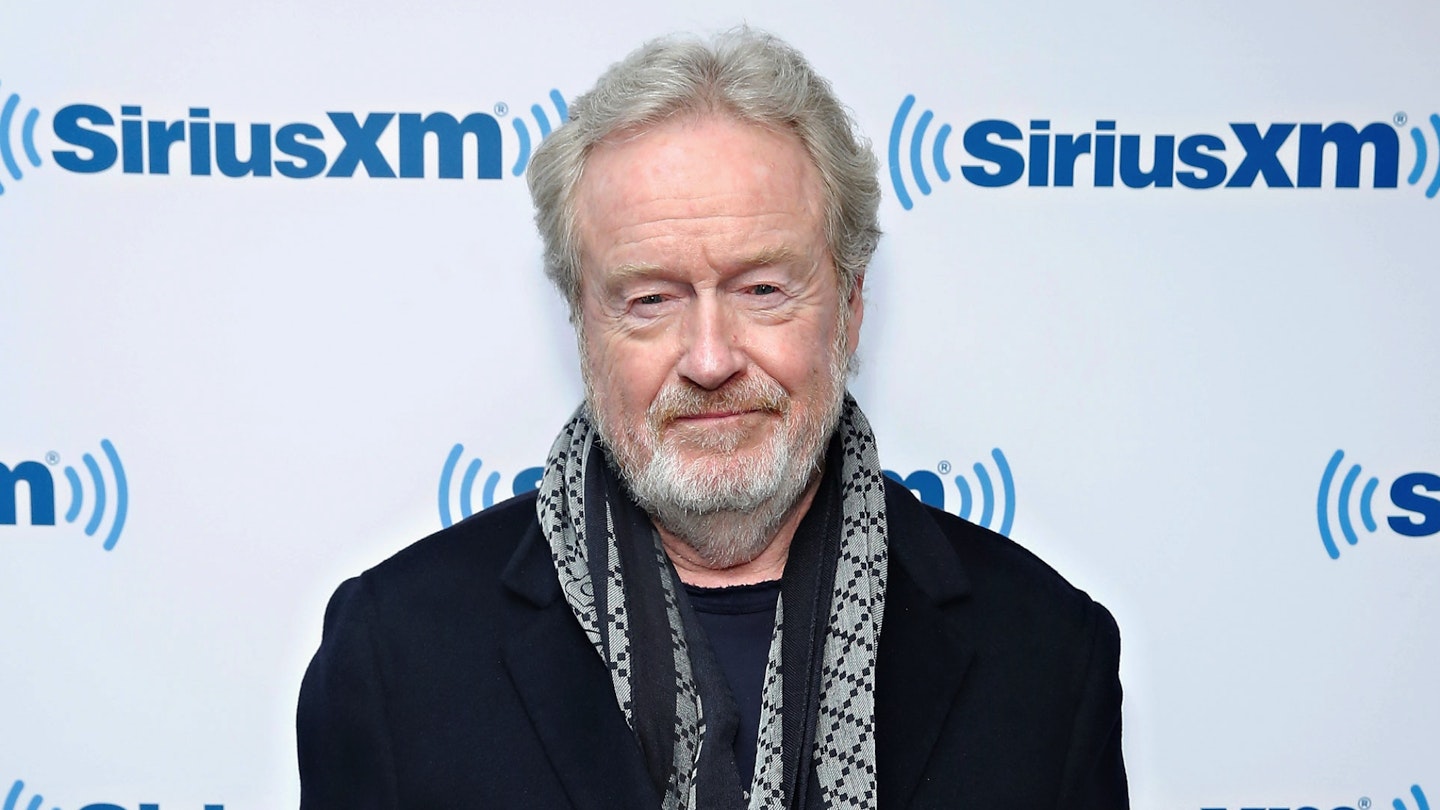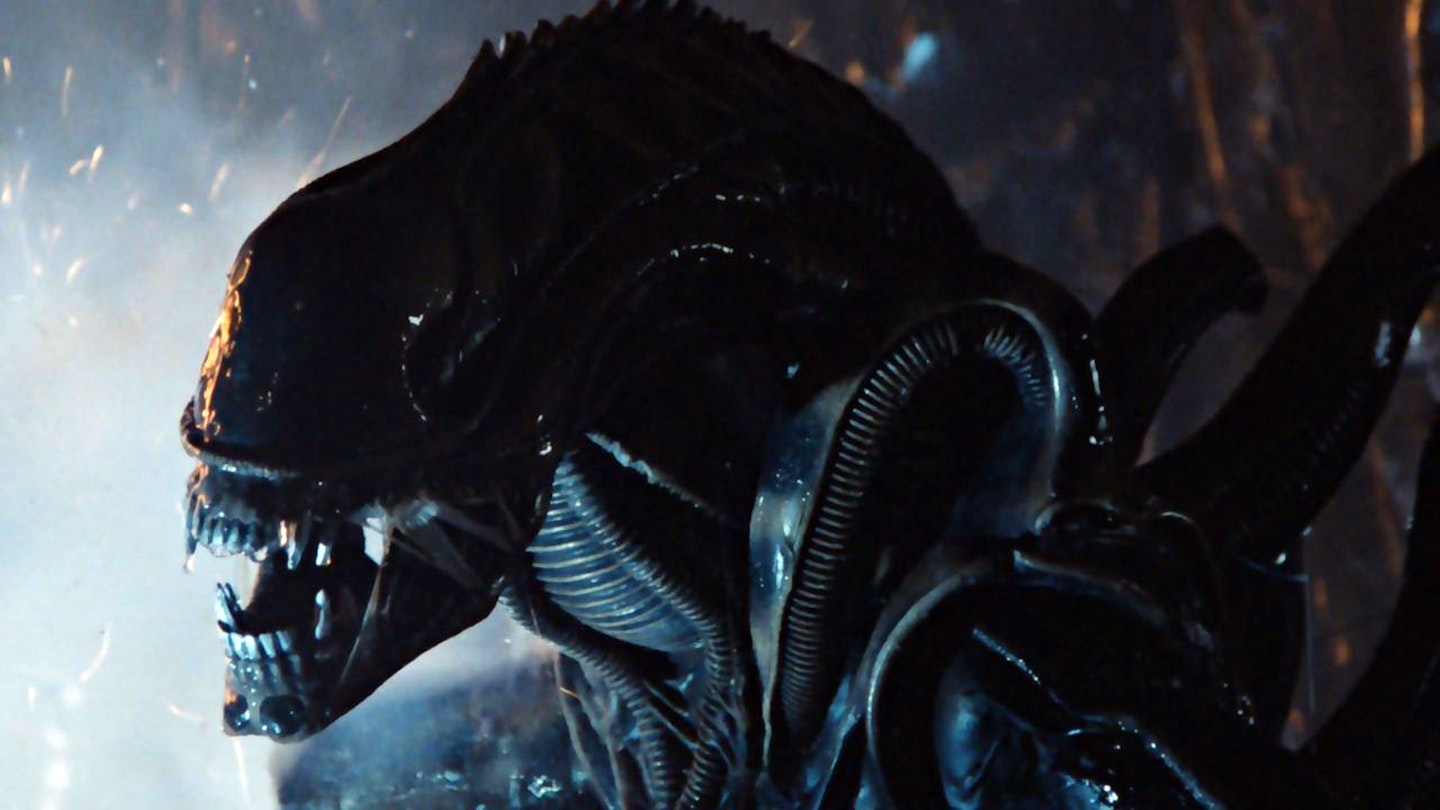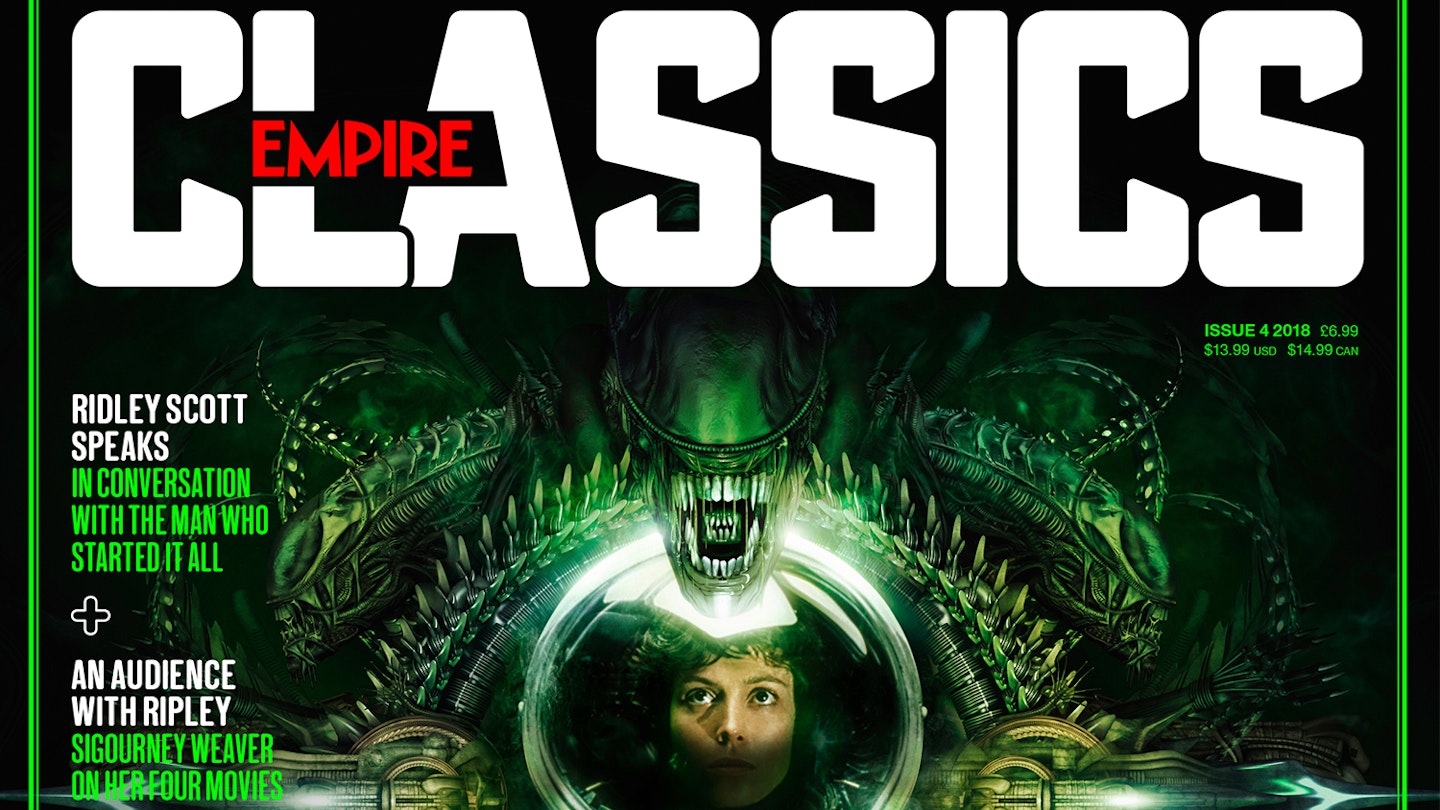When the title Alien: Covenant appears on the screen in Ridley Scott’s third entry into the six-film Fox franchise, it slowly emerges in deep space scored by Jerry Goldsmith’s beautiful haunting theme. After the different, divisive Prometheus, it seems like a reaffirmation of core values: this time, in space, no-one will hear you scream. If that is the intention, then Scott succeeds in fits and starts: it feels like a companion-piece with Prometheus, still talky and heavy-handed, but edges closer to the original in terms of gore, imagery and excitement.
Covenant opens on a big close-up of Michael Fassbender’s eye which, given the director, sets up the expectation of a Voight-Kampff test. Taking place in that sci-fi staple, the Sterile White Room With A Huge Window, a young Peter Weyland (Guy Pearce) lectures skin job David (Fassbender) about the mysteries of creation and – to underline the point – gets him to play Wagner’s Entry Of The Gods Into Valhalla on a grand piano. Clearly taking place before the events of Prometheus, we then cut to ten years after Noomi Rapace’s Elizabeth Shaw put David’s head in a duffel bag and blasted off to the Engineers’ planet. It’s now 2109 and the crew of the Covenant are transporting 2,000 colonists to paradise planet Origae-6 in order to start a new life. A random transmission — that is deciphered as John Denver’s Country Roads — alerts them to the presence of a nearer planet that has better conditions to support life. Having suffered a recent tragedy that left fatalities, the crew take the easy option and set down in the untested environment. There is breathable air. There is wheat. Only terraforming officer Daniels (Waterston) notices there are no bird or animal noises. Gulp.
Happily, compared to Prometheus, Covenant does better versions of all your favourite Alien tropes: crew bantz (“Sweet tits”, “Sugar dick”), a hazardous drop to a planet, the return of ship’s computer MOTHER, an argument over quarantine, running full-pelt down corridors, nervy bits with dripping water, eggs, Facehuggers, Chestbursters and Xenomorphs. But there are twists to the formula, too. There is a newborn alien that comes off like a malevolent Baby Groot. And we also get nifty Neomorphs, much more agile than their 1979 or 1986 counterparts, leaping about like Velociraptors when cornered by the crew.
When it is intense, Covenant is really intense. The first encounter with the nascent domeheads is a full-on onslaught, from uncomfortable scenes of uncontrollable shaking to moments of dark absurdity (slipping on blood at a key moment) to the beasties revealing a hitherto unknown skill at head-butting. Yet once the hunt is on, Scott can’t muster the sustained tension of Alien (or the relentless ride of Aliens). There are some creepy kills but none that recapture the imagination and design of the original’s deaths. He also can’t build momentum in the same way, the sense of narrative urgency sadly missing.
It’s just a shame that one of cinema’s greatest image-makers couldn’t deliver his ideas visually.
The Covenant crew are a particularly nondescript, inter-changeable bunch (there are 15; Alien had seven plus cat). Some show promise. Waterston’s Daniels is crippled with grief. Newly promoted captain Oram (Crudup) is dealing with doubts that his religious faith will undermine his authority. But only Danny McBride’s Tennessee really registers, and that’s partly because he wears a cowboy hat. In fact, the most interesting character relationships come between the two synthetics: newbie Walter and Prometheus holdover David (named after series producers Walter Hill and David Giler). Both skilfully differentiated by Michael Fassbender, the pair meet as David is the only inhabitant of the newly found planet. There are weird, interesting scenes as David teaches Walter to play flute, out-score each other on Romantic poetry and in, what feels like a bizarre piece of Fassbender slash fiction, kiss.
Yet it is also the point where Scott gets to indulge his Blade Runner-Prometheus preoccupation with playing God in on-the-nose discussions. At its best, aka The First Two, the Alien series works as dirty B movies (a slasher horror flick, a war film), embedding all the (psycho-sexual) meaning in the imagery. Here it is done in dialogue about the frustration of not being allowed to create and the loneliness of dreams. It’s just a shame that one of cinema’s greatest image-makers couldn’t deliver his ideas visually. Still, as The Martian proved, Scott is still good at this sci-fi malarkey, be it the big stuff (the Covenant sprouting sails to harness power) or the telling details (alien atoms get highlighted in smoke rings). John Logan and Dante Harper’s screenplay, after the laugh-free Prometheus, also adds a joke or two. At one point, there is a Phantom Of The Opera gag. Perhaps this is Covenant’s biggest scare: some 90 years from now, Andrew Lloyd Webber is still a thing.
